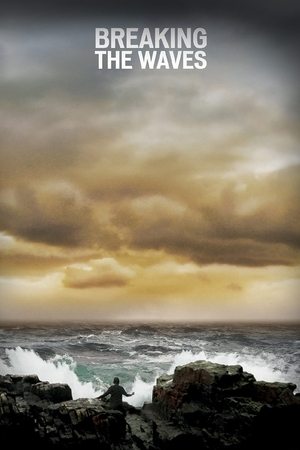
Breaking the Waves
**An ugly film on all levels that insults our intelligence.** For me, cinema is an art that tells good stories, whether fictional, true or a mix of fiction and real facts. It has a clear social role, often makes people think or raises difficult questions. However, there are directors who seem to live off controversy, that is, they try to use cinema to shock or impress, attracting attention for the worst and most selfish reasons. Lars von Trier is like that: he loves a good controversy and doesn't mind about criticism, as long as they talk about him. And that's why I don't like him and I don't consider him a good director. It's not enough to have talent, you need to know how to use it. As in many other films by this director, sex is the epicenter of this film: the script begins by introducing us to an incredibly naive and submissive woman, who lives in a kind of narrow-minded religious community in the North of Scotland. Anyone who likes to criticize Catholics for allegedly being followers of a conservatism that has no place today should get to know this Protestant religious community, where I, a conservative Catholic, would feel like I was in Iran or Afghanistan. It is clear that the director, a confessed atheist, wanted to show his horror towards religious dogmatics in general. It was a way to “caricature” religion and express a personal opinion. This young woman, whose innocence is so absolute that she would probably believe she could get pregnant just by sitting on a chair previously used by a man, marries a modern foreigner who works on an oil rig. And she discovers sex. And she loves sex, and gives herself to love. All this is beautiful until the day he suffers a serious accident. As he could lose his reproductive capacity, he asks her to meet and “relieve” herself with other men. Naturally, she is horrified, and he convinces her that this will help him heal. And against any rational logic, she believes, and becomes the biggest libertine in Scotland. We have to agree on one thing: this film proves that even the stupidest story wins awards at Cannes, and that there is an audience capable of consuming the most complete idiocy that a film can present to them. In addition to ridiculing religion in a way that is offensive to any believer, I believe, the film does not care about the rationality and logic of the decisions made by the characters. If I cut myself with a knife, of course I'm going to try to make sure it doesn't happen again because it's dangerous, but what the film proposes is that I do the opposite and intentionally cut myself, believing that I'm curing a loved one's cancer by doing so. This is so stupid that it doesn't deserve qualification. Von Trier, in an act of absolute intellectual arrogance, insults our intelligence. I don't even need to talk about the clumsy and distorted way in which the film approaches love and the most genuine human feelings. Technically, it's a cheap film. Cheaper than the worst indie films. We don't have a production worthy of the name, the cinematography is horrible, the filming is so amateurish that even I could do better. The rhythm is heavy, slow, like a mournful funeral. Stellan Skarsgard, an actor I respect, lends some renown to the film and shows talent, but his character deserves contempt. In an extraordinary dramatic effort, Emily Watson deserves praise for her commitment, but it is perhaps this actress' most forgettable film.
